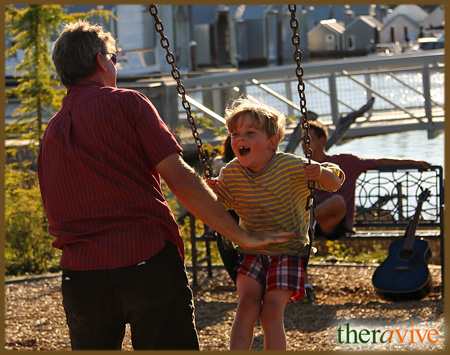 In modern lives, play is not
something many people entertain or even incorporate as part of a daily routine.
For most adults, play is regarded as trivial and its significance, under-estimated.
More often than not, play is thought of something that’s exclusive to the world
of children.
In modern lives, play is not
something many people entertain or even incorporate as part of a daily routine.
For most adults, play is regarded as trivial and its significance, under-estimated.
More often than not, play is thought of something that’s exclusive to the world
of children.
A new body of research is proving it
to be otherwise. It turns out that play is not just important for kids but also
essential for adults. Science is showing how play is a powerful source of creativity
that can help fuel motivation, imagination, and emotional intelligence by
promoting problem-solving and conflict resolution skills (Shute, 2009).
Importance of Play
With the advance of technology, human
lives have become increasingly more hectic and complicated. As a result, many
people are deprived of the necessary time to relax and play for pure fun. If
prolonged, however, this state of privation could engender adverse
ramifications on health and relationships (Brown, 2010).
Based on his decades of research studying
the power of play, psychiatrist Stuart Brown (2010) has posited that play is one
of the basic biological drives (as sleep and food) critical to human health and
well-being. He even compared play to oxygen, underscoring the value of play in
human life.
In his study, Brown has reviewed
over 6,000 case studies (involving play histories of people from all walks of
life including prisoners, successful business people, artists, and Nobel Prize
winners), examining the role of play in each person’s life. His data suggested that lack of play in
childhood, among other variables, was a major hindrance to establishing a happy,
well-adjusted life later as adults. Conversely, Brown also concluded that play is
a catalyst for maximum productivity, optimal socialization, and greater emotional
intimacy in relationships.
Psychologists are claiming that play has
steadily declined in recent years, which is bearing negative consequences for
kids and adults alike. Further research has correlated this declining trend with
a surge in psychopathology (e.g. depression and anxiety) among children and
adolescents including a host of other mental health challenges later in life
(Gray, 2011).
Benefits of Play
Contrary to what many adults might think, it is much simpler and easier to
reap the benefits of play in our daily life. It is suggested that play must be integrated
as a way of living embedded in what we do every day, readily accessible via any
unstructured, unrestricted form of simple activities such as laughing, flirting,
and even daydreaming (Brown, 2010).
Play does not have to involve a major planning in advance. Nor does it need
to entail any particular structure. In fact, if play is too rigid and
purposeful with the end goal as the main focus, it is no longer play. Play must
be free-flowing and imaginative if it were to truly benefit our social,
emotional, and cognitive development and well-being. Free play has to be
self-directed and intrinsically rewarding without any specific goals to be
achieved (Gray, 2011).
Opportunities to play in the true sense of the word can be easily created in
spontaneous moments of laughter, goofiness, humor, and some novel experiences
we allow ourselves to embrace every day. The benefits of play can be most
maximized when it can be experienced simply as a process rather than as a means
to achieve certain goals at the end, thereby creating new ways of being, doing,
and relating (ibid.).
In this vein, play is crucial to our learning, personal growth, and the way
we connect with others. In particular, play is known to
help relieve stress, improve brain functioning, increase productivity and concentration,
promote cooperation/collaboration with others, build strong interpersonal connections,
and even delay mental decline in old age (Shute, 2009).
Implication
After all, play is not petty. Nor is it a luxury as once thought.
Science is proving how children and adults alike can no longer afford to opt
out of it. It is an indispensable part of our very being as humans if we are to
live a happy, healthy, and fulfilling life. As scientifically delineated, play-deprived
life can result in some devastating consequences compromising the quality of
life.
Play is something we must engage in daily not only to maximize our potential
but to merely preserve our sense of worth and well-being as humans. It is as
fundamental and basic to human life as that.
Perhaps it is not a simple cliché when we say we are still a kid at heart. We
may seriously need to take the time to be a child all over again, every single
day of our lives, if we are to bring out the best in us.
Truly this is a humble, yet revolutionary invitation for all of us to play
together with our children and one another as grown-ups. All of us need to play
and in playing together every day, we may be able to collectively learn how to be
genuinely human.
References
Brown,
S. 2010. Play: How
it Shapes the Brain, Opens the Imagination, and Invigorates the Soul
Gray, P. 2011. The Decline of Play and the Rise of Psychopathology in
Children and Adolescents. American
Journal of Play, volume 3, number 4.
Shute,
N. March 2009. US News Health. 10
Reasons Play Can Make You Healthy, Happy, and More Productive: Recess Helps Kids Do Better In School. Retrieved
from http://health.usnews.com/health-news/family-health/childrens-health/articles/2009/03/09/10-reasons-play-can-make-you-healthy-happy-and-more-productive
About the Author

Dr. Agnes Oh
, PsyD, LMFTDr. Agnes Oh is dually licensed as a clinical psychologist and a marriage and family therapist.
For the last fifteen years, Dr. Oh has devoted her practice primarily in the areas of trauma, grief/loss, couples/family issues, and multicultural counseling, as well as personal empowerment. Dr. Oh is an avid proponent of a strength-based, relational approach to helping people as she firmly believes in each person’s intrinsic power to heal, grow, and thrive given the proper guidance and support.
Office Location:
1010 N. Central Ave. Ste. 303
Glendale, California
91202
United States
Phone: (818) 441-1096
Contact Dr. Agnes Oh
Professional Website:
www.dragnesoh.com